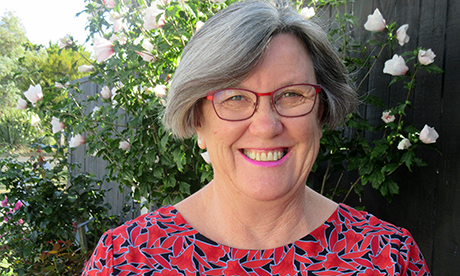The jury is out.
The collated data from the diocesan Synod responses have been published for all to read.
After the New Zealand Catholic Bishop’s Conference has prepared the synthesis of syntheses, all will be posted to Rome.
The can of worms has been opened. The reading is too serious to ignore.
In amongst the projections, conditions, expectations and sweeping generalisations, there wasn’t much expression of joy or excitement.
There are many Catholics who have estranged themselves from worship because they have been hurt by the church or the church has failed to be a place of inclusivity and equality the Synod revealed.
Yet these groups and people have no idea the depths of pining felt by those who go to Sunday Eucharist for them to gather around the Altar.
Eucharist takes us into paradox: that through the liberation of the Cross, creation replaced destruction and goodness triumphed over evil.
Entering into the Redemptive mystery of Jesus’s life, death and Resurrection offers us over and over again the hands of friendship to us. Too overwhelmingly marvellous to be true? – but it is true!
It’s in eating and drinking together that life’s messes and tragedies are made whole again. Grapes picked and crushed to become wine wheat thrashed to separate grains, ground to become bread; the body and blood of Christ. This is the exact place healing is offered.
The heartbreak is this: the very reconciliatory encounter offered in Eucharist is the very experience those who carry open wounds, distance themselves from.
In the worst of pain, there is hope for wholeness because life only rises from death. This is the ‘stuff’ of Eucharist.
Jesus puts it this way. “Unload all your worries onto him, since he is looking after you.” 1 Peter 5:7
Way down here on the ground of parish life, if we are to respond to the Synod findings, it would start with halting the blame game.
It’s time for personal ownership.
The Dalai Lama says this:” When you think everything is someone else’s fault, you will suffer a lot. When you realize that everything springs only from yourself, you will learn both peace and joy”
To blame is to remain held down by injury. It chews and churns away inside us keeping us a victim.
What’s happened or failed to happen, can’t be deleted, nor can we ‘put it behind us’ or ‘get over it’ or ‘get off the grass’ or ‘you’re still going on about it’ type one-liners.
No, it’s about confronting to integrate the incident to regain our power to be.
The Synod gave reason for any local parish faith community to ask of itself, what is my parish really like? Do we sincerely welcome someone new? Are the liturgies life giving, community vibrant and charisms galore identified and called from parishioners? Would I invite another to experience this body?
Everyone wants the other to change, but fewer want to change themselves.
Growth and maturity are in our hands. All of our hands.
Leadership models are critical to create vitalizing environments. Clericalism was sited throughout the Synod.
Ordained ministry continuing down through the ages from Jesus, was never meant to be referred to, or become a structure, or hierarchy, or self-governance, but service. Ministry – both ordained and lay is only about service.
St Peter had it figured out 2,000 years ago surprisingly.
“Never be a dictator over any group that is put in your charge, but be an example that the whole flock can follow.” 1 Peter 5:3-4.
Once the Catholic Church was likened to a well-oiled mighty piece of machinery. Everyone knew their place to keep the machine ticking over. She had become so efficient She lost the point of being in the business of Jesus. Vatican 2 reclaimed this basic fact that Jesus is Lord, to quote biblical Lydia after she had listened to St Paul preach in her hometown. (Acts 16:14).
“Keep us from becoming a ‘museum church’ beautiful but mute, with much past and little future” said Pope Francis in his homily on 10th October 2021 in Rome on the opening of the Synod.
- Sue Seconi – The Catholic Parish of Whanganui – Te Parihi Katorika Ki Whanganui
